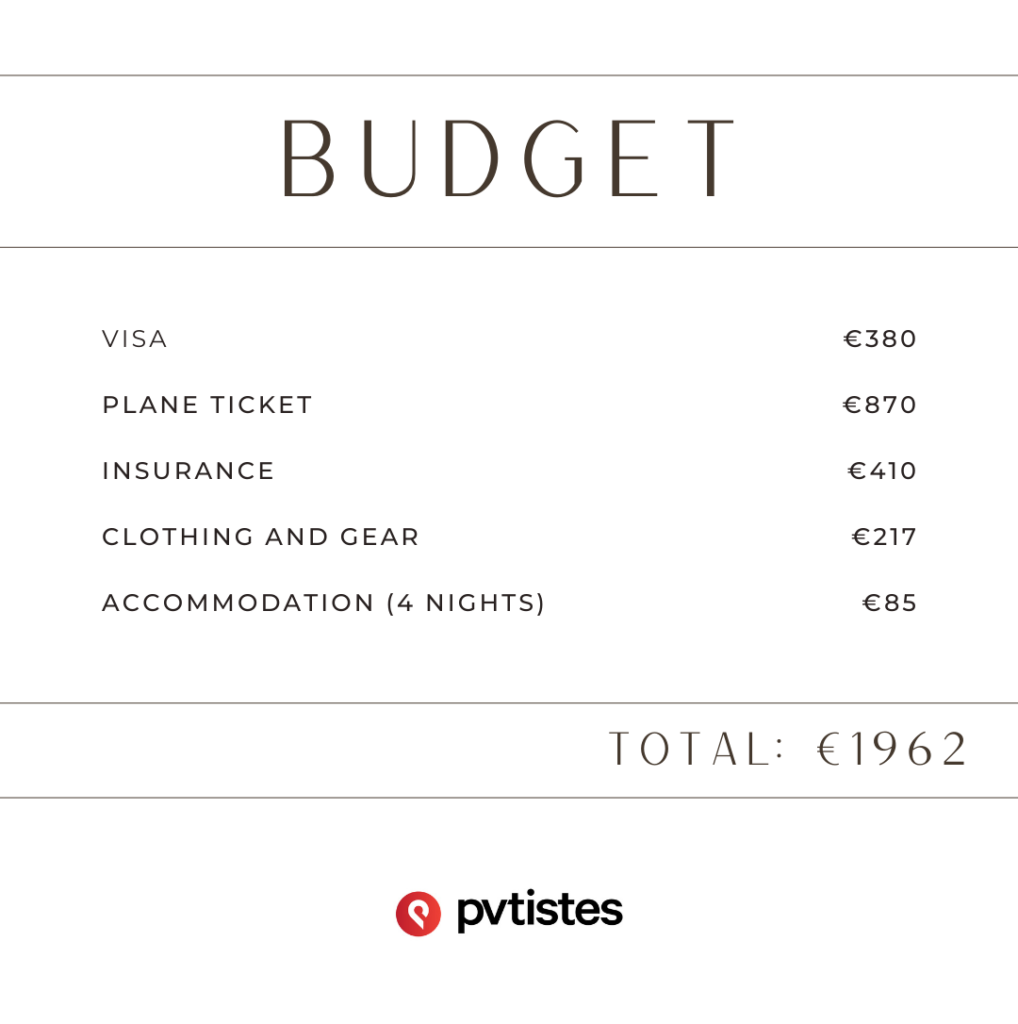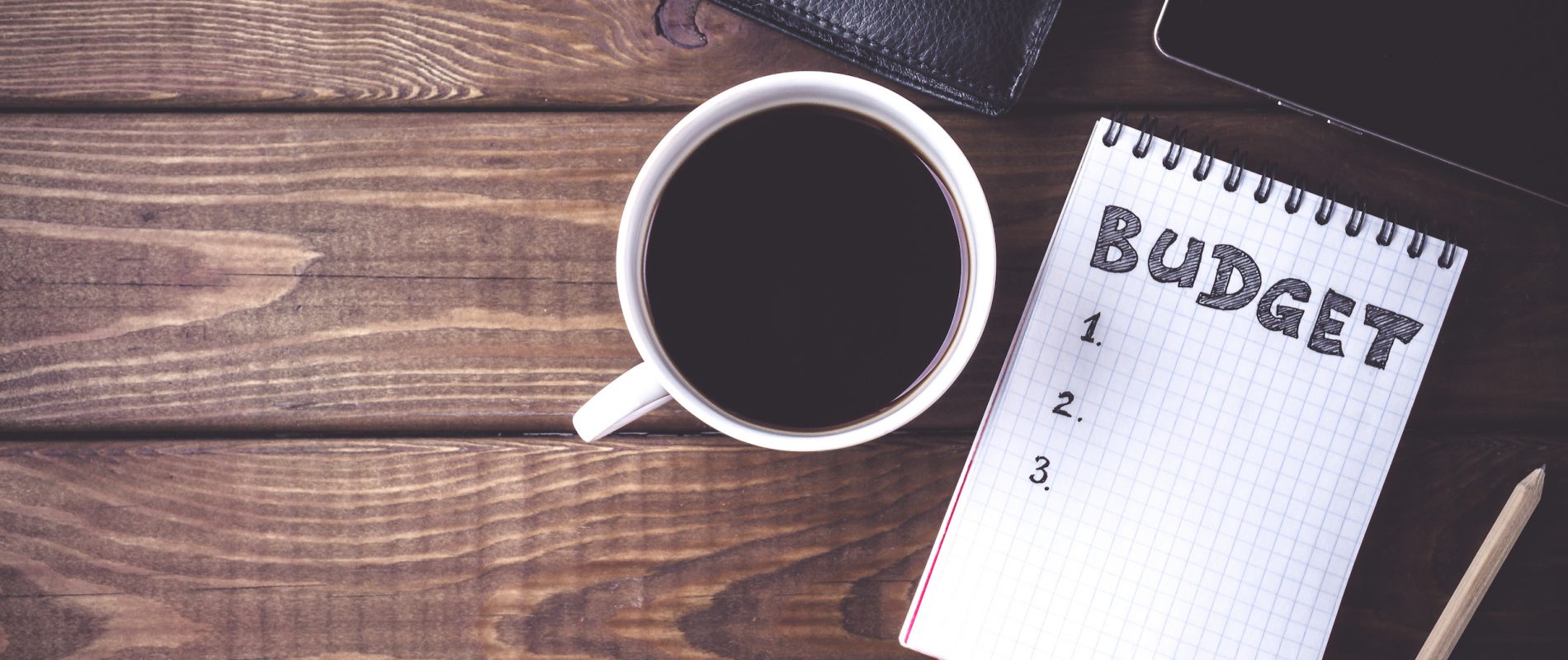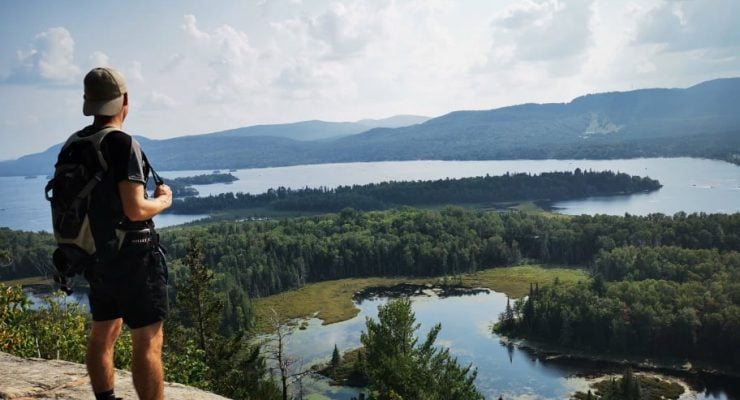How much money will you need to go on a working holiday in Australia? What will be your main expenses?
This article offers answers and advice on how to financially prepare for your trip Down Under. That said, remember that every budget is different—don’t rely on other working holiday makers’ budgets because each adventure is unique. Instead, learn how to plan based on your needs and expectations using our guide below.
Why and how to budget for a working holiday in Australia
First, let’s be realistic—you do need to have some savings to apply for a Working Holiday Visa (WHV) to Australia. Leaving home with the bare minimum is a huge risk. Having some money set aside will give you peace of mind and take the worry off starting a new life in Australia.
Of course, one of the biggest perks of a WHV is that you can work legally. If you want, you can prioritise work on your WHV to fund more adventures later on. Others may choose not to work at all, in which case a bigger budget is required.
It’s worth remembering that everybody spends money differently. Your budget will depend on your lifestyle, expectations and plans. For some people, a working holiday in Australia is an opportunity to try vanlife and spend months on the road, while others prefer to settle in one of Australia’s big cities. This is just to say that budgets vary greatly from one working holiday maker to the next. Your budget will be the right one as long as it aligns with your plans.
What’s the minimum I need to budget for?
1. Mandatory proof of funds
Savings are required to start the Australian WHV application process. It’s mandatory to show proof of funds of AU$5,000 (or the equivalent in another currency) to support yourself at the start of your stay. Your evidence must be in English (or translated into English) and uploaded when applying for your WHV. You may be asked for proof of funds again when landing in Australia, although it’s not a common request. You may be refused entry to the country if you can’t prove you have sufficient funds.
If you’re travelling on a one-way ticket, you must add the cost of a return ticket to the AU$5,000 required (around an additional AU$1,000).
2. Pre-departure expenses for a WHV in Australia
Pre-departure expenses do not include the mandatory savings of AU$5,000.
Here is an overview of the expenses to take into consideration when planning your WHV in Australia:
- Visa fees: the Australian WHV is relatively expensive. It costs AU$670.
- Airfare: prices are much higher than they used to be and vary widely depending on the time of year, the arrival and departure cities, and the airline. If you come across a good deal, go for it! There’s no need to wait until the last minute, as it’s rare to find competitive prices close to departure. Compare prices to find the best offer.
- WHV insurance: it’s mandatory for many WHV destinations, and can be for the Australia WHV (if your visa is issued with condition 8501 – Maintain adequate health insurance). Even if insurance is not mandatory for you, you’ll want to get insurance in case anything happens.
- Travel gear: you may find you need a new backpack or camping gear before your trip. Travel light! You’ll find plenty of stores in Australia (e.g. Kmart, a discount chain) to buy equipment, if necessary.
- Passport: you will need a valid passport to travel to Australia, so if you need to apply for a new one or renew your current document… this comes with a fee.
- Medical check-ups: it’s best to leave with peace of mind so now is the time to see your ophthalmologist, gynaecologist, general practitioner, etc. Depending on where you live, you may need to pay for these check-ups. As a reminder, WHV insurance will not cover routine check-ups or expenses related to existing health problems. It’s best to think ahead!
- Clothing: in Australia, it can be very hot, but it can also be cold and even snowy (yes, it snows in Australia!). Depending on the season and when you arrive, you may need to pack warm clothes. Also, don’t take your most valuable or brand-name clothes—they will take a beating on the road.
- Accommodation for the first few nights: before you leave, book a few nights in a hostel, Airbnb or hotel to recover from jet lag and a long journey.
To give you an idea, here are my pre-departure expenses (from 2022):

How to create a budget before your trip
There are standard expenses to plan for at the beginning of a WHV adventure. Your budget will vary depending on transportation, rent, food, inflation, etc.
Here are the expenses you’ll need to plan for at the beginning of your stay:
- accommodation
- transportation
- groceries
- phone plan
All travellers will have to eat, get around, and sleep somewhere, but your budget will depend on your plans and how you want to start your adventure. Are you planning to buy a converted vehicle right away? Are you embarking on a road trip? Or do you want to find an apartment and a job in a city as soon as you arrive? Will you look for volunteering opportunities?
It’s time to be realistic. Ask yourself the right questions—is this going to be a “working” adventure or a long holiday?
Leaving home with enough money offers peace of mind. It will also help you make the most of your adventure in Australia because, let’s face it, money is the key to unforgettable opportunities—a cruise in Tasmania, a snorkelling trip with whale sharks, a helicopter flight over the Great Barrier Reef… You’re probably not travelling all the way to Australia just to spend a year picking watermelons. Save and bring more money than you think you’ll need to dedicate some of it to the travel experience.
Look at your current spending patterns and define what matters most to you. Do you love nightlife? Are you a foodie? Do you want to join a gym? Use your normal expenses to define your long-term budget in Australia and adjust as needed.
How much does a year in Australia cost?
There’s no right answer to this question. If, like many working holiday makers, you will combine paid work opportunities with travel, you don’t necessarily need a set budget because you can pick up work when your funds are getting low.
That’s the whole point of the WHV!
However, it’s not uncommon to come across working holiday makers who spend their whole year travelling around Australia. If this is your plan, you’ll need to budget carefully because you won’t have any source of income for a year. Keep in mind that if you can’t save as much as you were hoping, you can shorten your stay—you don’t have to stay in Australia for an entire year.
Every working holiday adventure is unique, it’s your trip, and it’s up to you to plan it the way you want it to be!
How to budget for a working holiday in the city
Generally speaking, if you live in a city, housing will be your biggest expense. The cost of living is quite high in most Australian cities. Your budget will depend on where you settle Down Under.
To keep rent affordable, many Australians share a place with “flatmates.” It’s quite easy to find a room for rent.
You will have to budget for:
- housing
- transportation
- groceries
- phone bill
- activities and entertainment
How to budget for a working holiday on the road
Your budget will be quite different if you’re spending your working holiday on the road… and once again, it depends on your lifestyle, travel plans and expectations.
Are you going to buy a van, a 4×4 or another converted vehicle? Or are you going to leave the driving to someone else and try your luck at hitchhiking?
If you’re buying a vehicle, here are the initial expenses to consider:
- vehicle price (note that prices have skyrocketed in recent years)
- registration transfer
- insurance
- equipment
And once on the road, budget for:
- petrol
- parking
- tolls
- groceries
- phone plan
- miscellaneous expenses (repairs)
- activities and entertainment
Plan for the end of your stay
Is your WHV ending soon? Take the opportunity to sell what you don’t want to bring home. This will save you extra luggage charges at the airport.
If you bought a van during your stay, it’s a good idea to get ready to sell it. You may get some of the money invested in your vehicle back.
Saving money before and during a WHV in Australia
How to save money before your trip to Australia
There are several ways, big or small, to add to your savings before you leave. Here are a few ideas to save more money for greater peace of mind.
Tips & tricks:
- move back with your parents for a while
- cut back on day-to-day expenses
- put money aside regularly
- look for odd jobs
- sell some of your belongings (anything without sentimental value and won’t use during your year in Australia)
- cancel subscriptions (phone, Netflix, etc.)
How to save money during your working holiday in Australia
There are many ways to live frugally during your working holiday in Australia.
Tips & tricks:
- volunteer for room and board
- look for odd jobs
- hitchhike
- carpool
- use public transport (take a night bus to save a night in a hostel, for example)
- save money on food (avoid buying expensive imported products, for instance)
- rent a room in a shared house
- stay in hostels
- sleep in your car
That said, don’t forget to splurge when it’s worth it—you’ve travelled all the way to Australia for once-in-a-lifetime experiences, after all! Define your priorities, save money whenever possible and spend when it matters.
Budget for an emergency fund
Don’t forget to keep enough money to cover the unexpected. For example, if you have to fly home for an emergency, having at least AU$1,000 (or equivalent in your home currency) set aside will save you a headache. On the other hand, if you only have AU$10 left, this can quickly become a problem. Remember you’re alone, far away from home—you need to be able to deal with all kinds of situations.
Now start budgeting! And remember that you can work legally during your stay. You should be able to balance your budget and make the most of your experience. Once you’ve saved enough for the mandatory proof of funds, you can technically have a great experience if you adjust your budget accordingly.
For more money-saving tips, read:












 Français
Français English
English





0 comments
{{like.username}}
Loading...
Load more